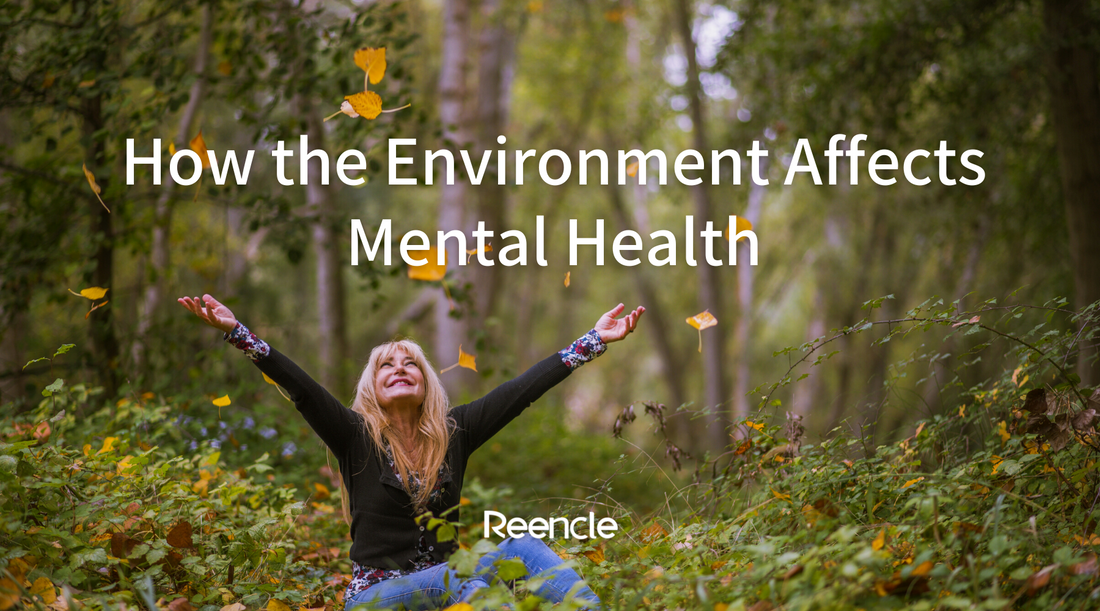In case you didn't know, today, the 10th of October, is World Mental Health Day. You might be thinking, “how does that correlate with the environment?”, which is a completely fair question. Unbeknownst to many, mental health and the environment are quite closely connected with each other. Not only does climate change pose some serious risks to our mental health and overall well-being, but the environment as a whole can also negatively or positively impact a person’s mental well-being.
Whether we like it or not, we are all on the frontlines of ecological damage, and understanding how the environment affects us is important. This allows us to channel our awareness into active action to prevent climate change from worsening more than it has.

Climate Change, A Fast-Paced Life and Anxiety
A 2019 study showed that anxiety and depression levels were increasing when people thought about living amidst a climate crisis. This is something most (if not all) of us can relate to, especially now that the Malaysian monsoon season is running its annual course. You might think that the change in our climate doesn’t actively affect us, when it in fact very much does. Not only does climate change actively and currently pose serious threats to our lives and the planet’s future, it also drastically affects the economy, jobs and you guessed it - mental health.
Our world has has gone from being a safe place that essentially guaranteed food and shelter, to a place of extreme unpredictability and danger. A French neurologist in the 19th century linked hysteria to the speed of modern life. While you might not think this relates to the environment, the rate at which our lives move is inarguably not sustainable. We consume faster and more than we can replenish resources, and this ultimately leads to a crash when we can no longer sustain ourselves.

Pollution and Mental Illness Risks
While the environment and mental health being related might sound far-fetched, studies have also shown that pollution and certain chemicals can increase risks of mental health issues. Another 2019 study by Psychiatry Research showed that children become three to four times more likely to have depression if they’re exposed to dirty air at age 12. The latest Global Chemicals Outlook also confirmed that lead is toxic to our nervous system.
Rising rates of urbanization increases our isolation from nature, which has unsurprisingly prevented us from getting the benefits that come with being surrounded by nature. Being around a clean and healthy environment has been linked to lower blood pressure, lower stress hormones and so many other health benefits (both physical and mental!).

There is strong evidence that noise pollution (especially due to traffic), can cause mental health issues. These issues include poor sleep, cognitive impairment, annoyance and other psychiatric problems. Not only does our way of living produce these disturbances, especially in cities, but they also create other environmental problems like food-waste that causes massive levels of greenhouse gasses, air pollution, and so much more.
The combination of all these risk factors can lead to a much worse and more cumulative impact on our mental health. A children’s hospital in Cincinnati also found that there was a big link between traffic-related air pollution and levels of anxiety.

Studies have repeatedly shown that nature helps us cope with pain, as we are genetically programmed to find trees, plants, water and other nature-elements engrossing. Spending time in nature has been shown to reduce anxiety and depression hence being absorbed by nature and its scenes helps and distracts us from our pain and discomfort. Research done in hospitals, offices and schools have found that something as simple as a small plant in a room can decrease stress and anxiety greatly.

However, how do we take relief from the environment we don’t protect? We can’t keep being complacent while expecting nature to continue providing for us. Our reckless actions (whether intentional or otherwise) directly impact the environment, which then negatively impacts us. We need to create change that starts with us - now. A hurt environment hurts us, and nature can only provide for us when it isn’t hurting.
If you’d like to learn more about where you can begin your sustainability efforts, we’ve written a blog post on 6 Sustainability Resources you could use. If you’d like to join us on our journey towards creating a better planet through composting, follow us on Instagram and Facebook.
Psst! We’re currently sending out exclusive promo codes to our newsletter subscribers that will give you a discount of RM800 on your Reencle pre-order. Join the fun by subscribing here.

